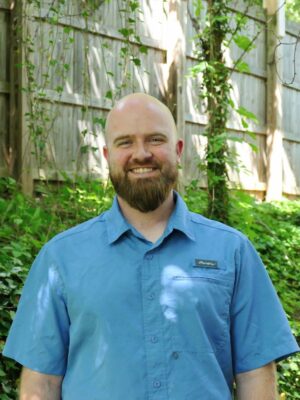I am a Licensed Clinical Social Worker Associate working both in the office and via tele-health services online. I earned my Master’s degree in Social work at Appalachian State University in Boone, North Carolina. Prior to graduate school, I worked in wilderness therapy, primarily with adolescents. This experience opened my eyes to the wide variety of issues plaguing young people today, as well as the wide variety of clinical approaches that have proven efficacy in treating those issues. This experience prompted me to pursue a career in mental health counseling and social work.
I pride myself in utilizing a person-centered approach in my work, taking into account all the various factors that influence each individual in their lives. I have experience working with individuals suffering from depression, anxiety, life transitions, self-esteem issues, traumatic experiences, as well as severe and persistent mental illness such as schizophrenia and bipolar disorders. I have also worked with neurodiverse individuals, including those with autism spectrum diagnosis. I utilize a variety of therapeutic modalities including cognitive behavioral therapy (CBT), motivational interviewing (MI), acceptance and commitment therapy (ACT), mindfulness based therapy, and mind-body or somatic processing.
I have a firm belief that the answers a person seeks are to be found within themselves, often through a process of exploration of those parts we hide away from sight. I am willing to walk alongside you as you look within yourself and find those answers. I believe thoroughly in the dignity and worth of every person, and hope to reflect that in every aspect of my life and practice.
My Specialties
I work with patients in many different areas of mental health, and I welcome all. I have extensive experience with Autism, Depression, Self Esteem, and Trauma.
Depression and Self Esteem issues often overlap. I invite you to call me for treatment if you have any of the following symptoms:
● Numbness
● Loneliness
● Extreme fatigue
● Hopelessness
● Loss of interest
● Anxiety
● Irritability
● Changes in appetite
● Unexplained aches and pains
I specialize in Trauma, PTSD, and Abuse Treatment. Trauma can be a difficult thing to define. Like all things psychological, it is inherently subjective, and different things can be traumatic for different people. In this sense, it may be easier to define trauma by how an individual reacts to the event or series of events rather than the event itself. In other words, the important factor when discussing trauma is the experience of the individual after the event. This is important because an event that may elicit what we in the mental health profession call a trauma response in one individual may not have the same effect on another.




